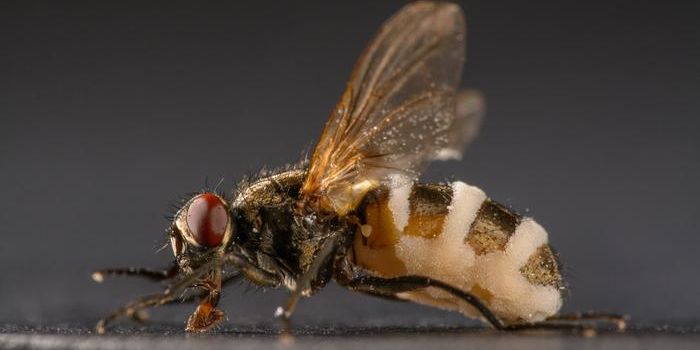New Insights Into Human Mitochondrial Mutations
The human genome is contained in the nucleus of almost every cell in the body. But those cells also contain multitudes of mitochondria, and these incredible little power-generating organelles carry their own tiny little genomes and make their own proteins. When mutations arise in mitochondrial DNA (mtDNA), it can cause serious disease. But it's also possible that we have only identified a handful of relevant mtDNA mutations, because some might have more mild effects. Reporting in Cell, scientists have now analyzed data from over 116,000 pairs of moms and children to learn more about the rate of mutations in mitochondrial DNA, and how mtDNA is passed down.
The mitochondrial genome has long been known to be inherited from mothers. Everyone starts out with hundreds of thousands of copies of mitochondria, and within each of them there is mtDNA that comes from some of the original maternal mtDNA molecules. This process causes something known as a "germline bottleneck" when oocytes are generated.
The work highlighted the deleterious nature of one mtDNA mutation in particular that causes in MELAS syndrome. While there were a surprising fifteen instances of this mutation in 2,548 matrilineal pedigrees, the mutation usually disappeared after a few generations because of how serious an impact it has on carrier's health.
There were other deleterious mutations that were selected against over time, and were short-lived because of their serious effects. The number of transmissions of mutations in mtDNA were used to calculate the rate of heritability; this effort suggested that on average, a person only inherits about three 'units' of mitochondrial mutations from their mother, a lower number than previous work has indicated.
There are hundreds of thousands of mitochondria in an oocyte, compared to the single nuclear genome that researchers are typically describing. "It is remarkable that the hundreds of thousands of mtDNA carried by oocytes are derived from only about three of the mtDNA molecules originally carried by the mother," noted co-corresponding study author Agnar Helgason of deCODE Genetics.
"This drastic bottleneck determines the rapid rate at which new mutations in the mtDNA germline can become lost or fixed over just a handful of generations in a pedigree, and must be in part due to a selection process during the development of oocytes, where mtDNA molecules with deleterious mutations are removed from the germline," added Helgason.
Thus, the researchers also identified evidence of negative selection in which mitochondria that did not function well were removed during oocyte development.
"Unfortunately, it is the hypermutability of some pathogenic mutations that has made them so prevalent and thereby easier to discover. However, our findings suggest that many rarer pathogenic mtDNA mutations that are responsible for disease burden in human populations remain to be discovered," said corresponding study author Kári Stefánsson, CEO of deCODE Genetics.
This work was made possible by deCODE Genetics and the thousands of Icelanders who have donated their genetic, health, and familial data for analysis.
Sources: deCODE Genetics, Cell









